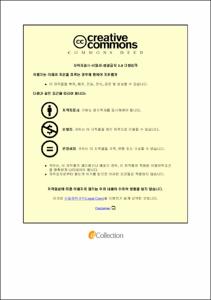COVID-19 사태로 인한 정서적 불안정성이 항공사 직원의 고용불안정성과 이직의도에 미치는 영향
- Alternative Title
- The effect of Affective Lability caused by the outbreak of COVID-19 on Employment Insecurity and Turnover Intention of Airlines employees
- Abstract
- The purpose of this study is to verify how the airline employees' affective lability appears due to the outbreak of COVID-19, to confirm the relationship between the affective lability and employment insecurity.
And for examining the effect of employment insecurity felt by airline employees on turnover intention.
This is to be used as an effective human resource management in the aviation industry by conducting an empirical analysis for airline employees.
As the first goal for this, I selected 'anxiety/depression', 'anger', and 'depression/elation' as the methods for checking affective lability, and verified the relationship to employment insecurity.
And I tried to counduct a study on the turnover intention as a result items of employment insecurity perceived by employees.
As a result of the analysis, the following research results came out.
First, the leading variables affecting the employment insecurity of airline employees were 'anxiety/depressed' and 'depressed/elations', but the 'anger' factor did not affect it. Second, as a result of verifying the relationship between empolyment insecurity and turnover intention, it was confirmed that the higher the employment instabilities, the higher the turnover intentions.
This study is based on the situation in which the public’s affective labilities and many difficulties on industries due to the spread of pandemics, such as the COVID-19 outbreak. But the facts that there is lack of researches on airlines caused by the spread of the pandemic and infectious diseases.
This is the first study about the affective lability of airline employees, employment insecurity and turnover intention. caused by outbreak of COVID-19.
The increased affective lability of airline employees and employment insecurity due to ourbreak of COVID-19 does not mean that not all employees are willing to leave the company, but when an employees feels employment insecurity and perceives a violation of the psychological contract of obligations and responsibilities to be observed between the organization and the employee, they becomes more willing to leave and change jobs. Therefore, airlines and excutives should try to ensure that their employees do not feel excessive empolyment insecurity and to carry out continuous management such as affective stability programs, counseling, educations, etc.
- Issued Date
- 2021
- Awarded Date
- 2021. 2
- Type
- Dissertation
- Publisher
- 부경대학교
- Alternative Author(s)
- Choong Gyeong JOE
- Affiliation
- 부경대학교 경영대학원
- Department
- 경영대학원 관광경영학과
- Advisor
- 양위주
- Table Of Contents
- 1.서 론 1
1.1.연구의 배경 1
1.2.연구의 목적 4
2.이론적 배경 6
2.1.정서적 불안정성 6
2.2.고용 불안정성 11
2.3.이직의도 16
3.연구 모형 및 연구가설 20
3.1.연구 모형 20
3.2.연구가설의 설정 21
3.2.1.정서적 불안정성이 고용불안정성에 미치는 영향 21
3.2.2.고용불안정성이 이직의도에 미치는 영향 22
3.2.3. 변수의 조작적 정의 22
3,3,연구대상 및 자료 25
3.4.설문지 구성 25
3.5.분석방법 28
4.실증분석 29
4.1.표본의 일반적 특성 29
4.2.타당성 및 신뢰성 분석 31
4.3.가설검증결과 34
5.결론 38
5.1.연구의 요약 및 시사점 38
5.2.연구의 한계점 및 향후 연구방향 41
참고문헌 44
설문지 55
- Degree
- Master
- Files in This Item:
-
-
Download
 COVID-19 사태로 인한 정서적 불안정성이 항공사 직원의 고용불안정성과 이직의도에 미치는 영향.pdf
기타 데이터 / 12.18 MB / Adobe PDF
COVID-19 사태로 인한 정서적 불안정성이 항공사 직원의 고용불안정성과 이직의도에 미치는 영향.pdf
기타 데이터 / 12.18 MB / Adobe PDF
-
Items in Repository are protected by copyright, with all rights reserved, unless otherwise indicated.